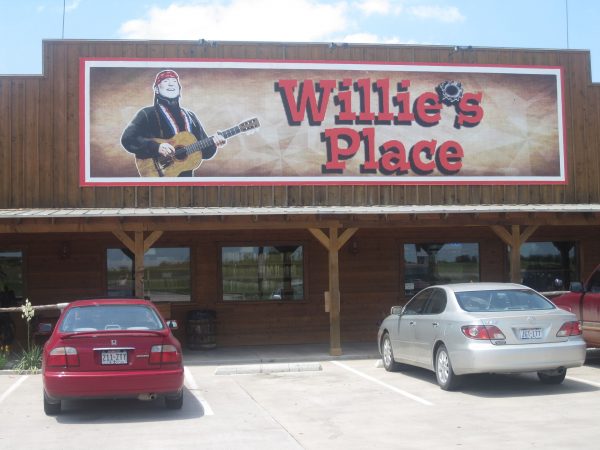Willie Nelson, Animal Rights Activist Saves 70 Horses
In most cases, you wouldn’t expect Willie Nelson, an 86-year-old animal rights activist to have much of an impact on the plight of abused animals – horses in particular.
Some might throw a little bit of their Social Security income to responsible charities who help protect animals, but hands-on involvement seems a little out of the picture. Not if you are Willie Nelson.
At a time when many of his peers are content to sit back, take it easy, and enjoy their retirement and what’s left of their lives, 86-year-old Willie Nelson is still out there swinging.
At his Luck Ranch (“if you’re here, you’re in Luck”) in the Texas Hill Country, not far from Austin, Nelson takes care of over seventy horses he has either adopted from shelters or, in the case of about thirty of them, rescued directly from a trip to the slaughterhouse. These rescued animals now run free on his 700-acre ranch home.
Nelson’s musical career and successes are well-known, and he still tends to be the outlaw personified. He is a long-standing proponent for the legalization of marijuana and has spent time in jail because of it.

He even markets his special “Willie’s Reserve” following the legalization of marijuana in some states. His legal difficulties with the IRS are also well-chronicled.
Nelson has long been an animal rights advocate, and he has a special spot in his heart for horses. He won a Telly Award for his 2015 video The Love of Horses, an homage to efforts to try to stop the slaughter of horses in America.
Rolling Stone discusses the title song of his newest album, Ride Me Back Home, an aching tribute to the horses he has rescued and those still waiting to be rescued or adopted, “Now they don’t need you/There’s no one to feed you/There’s fences where you used to roam/I wish I could gather up all of your brothers and you would just ride me back home.” The album is scheduled for release in June of this year.
Nelson’s charitable involvement and accomplishments are long established and extend beyond his love of animals.
Nelson was one of the original founders of the first Farm Aid concert back in 1985, using the star-power of rock and country singers to address the plight of America’s farming community.
Nelson is supportive of all animal rights. In 2013, he canceled a planned concert at SeaWorld to protest their treatment of animals in their facilities.
But his first love is the horse. Nelson has been part of the Board of Directors for Habitat for Horses, which is the largest US-based organization for equine protection.
He has also been involved with other animal rights and animal welfare groups, including the Best Friends Animal Society and the Animal Welfare Institute. In a press release, Best Friends praised Nelson for his support, citing his work with both human and animal underdogs
His work with the Animal Welfare Institute has positioned both Nelson and his daughter Amy as advocates to convince the Bureau of Land Management to end the slaughter of horses in America.
While the last American slaughterhouses were closed a decade ago, thousands of horses, including wild horses that roam public lands managed by BLM, are still gathered up and transported under stressful and oppressive conditions to Canada and Mexico for slaughter.
Both are supporters of The Safeguard American Food Exports (SAFE) Act (H.R. 961), federal legislation that would prevent the horse slaughter industry from re-establishing operations in the U.S. and prohibit the export of American horses abroad for slaughter.
In 2011, Nelson and his family recorded their version of the Rolling Stones classic Wild Horses to increase awareness of the plight of the remaining wild horses in the US.
All of the net profits from the recording went to benefit AWI. As Nelson quoted on the AWI website in support of the group: “Sadly, there are more wild horses in holding pens than in the wild. Something is wrong with that…”
Discovered 25,000-Year-Old Hut Made From Mammoth Bones
It has been said that “The way a person treats animals gives you a window into their soul.” In Nelson’s case, this window is crystal clear.





